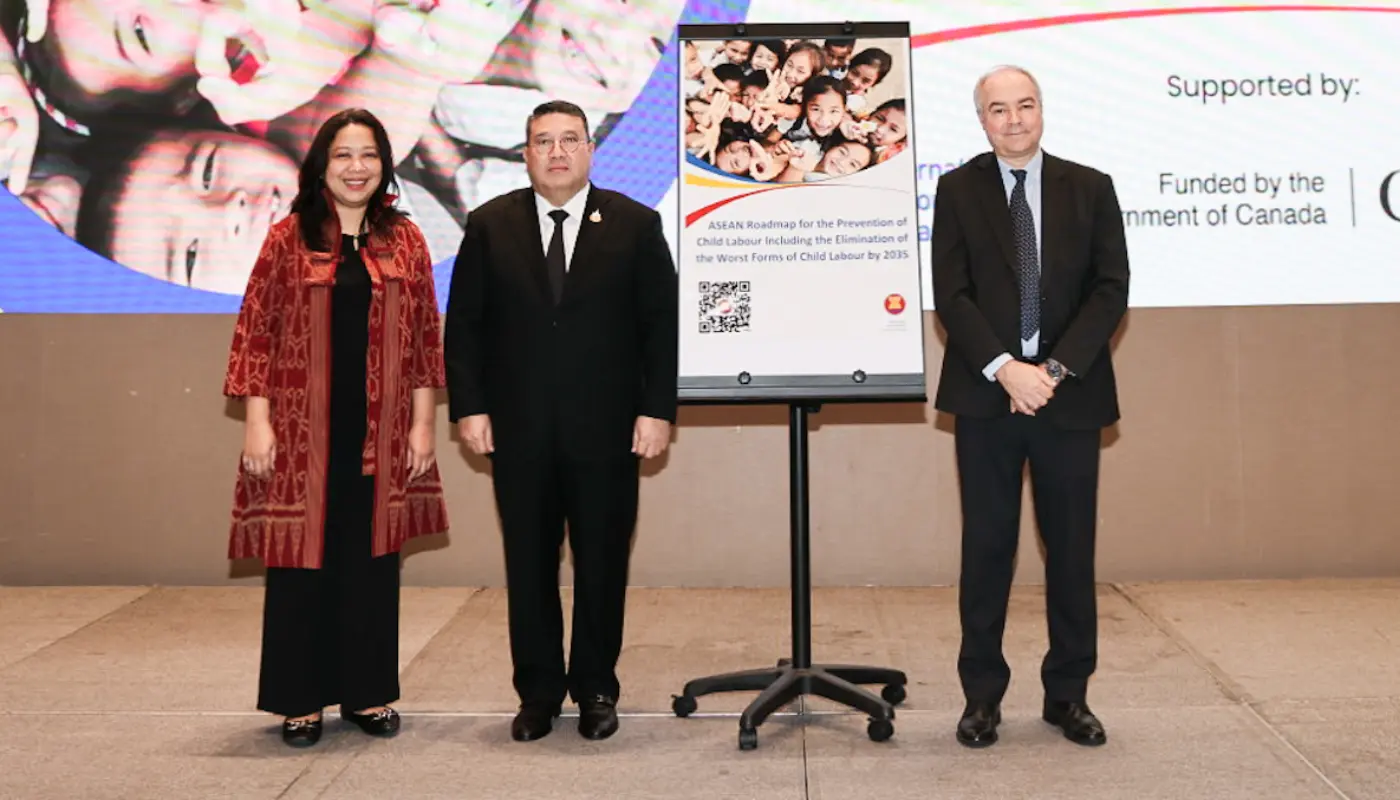BANGKOK – The Association of Southeast Asian Nations (ASEAN), with technical support from the International Labour Organization (ILO), has launched a new regional framework to prevent child labour and eliminate its worst forms by 2035.
The initiative, endorsed by leaders at the 47th ASEAN Summit, marks a renewed commitment to collective action against exploitation across the region.
The ASEAN Roadmap for the Prevention of Child Labour, Including the Elimination of the Worst Forms of Child Labour by 2035 builds upon the achievements of two earlier frameworks.
Covering the period 2026–2035, it provides governments and partners with practical guidance to strengthen law enforcement, expand access to education and social protection, and encourage responsible business practices.
Persistent challenges remain in agriculture and other vulnerable sectors, where children are often exposed to hazardous work. The roadmap also addresses root causes such as poverty, indebtedness, and barriers to schooling, while recognising emerging risks linked to migration, climate change, and the digital economy.
Organised under three pillars Prohibition, Prevention, and Protection, the roadmap aims to foster cross-sectoral collaboration and coherent regional responses.
Opening the launch workshop, Thailand’s Permanent Secretary of Labour, Pol. Lt. Col. Wannapong Kotcharag, emphasised the importance of unity.
“The unity of the eleven ASEAN Member States will make our efforts more concrete and impactful. ASEAN will serve as a strong force to operationalize the Roadmap, strengthen our collective capacity through knowledge sharing and joint planning, and ensure that no one is left behind.”
Deputy Secretary-General of ASEAN for the Socio-Cultural Community, San Lwin, described the roadmap as a reflection of ASEAN’s shared commitment to a “resilient, people-centred, and inclusive region where every child can grow free from exploitation and with access to education, protection, and opportunity.”
From the Philippines, Assistant Secretary Amuerfina R. Reyes noted that the roadmap is “future focused, integrating lessons learned and proven practices for greater impact,” and urged member states to align national frameworks and strengthen partnerships.
The ILO’s Deputy Regional Director for Asia and the Pacific, Tuomo Poutiainen, reaffirmed the organisation’s support, pledging continued technical guidance, knowledge sharing, and capacity-building to ensure effective implementation.
The launch event, hosted by Thailand’s Ministry of Labour, brought together 124 participants both in person and online, including representatives from ASEAN bodies, workers’ and employers’ organisations, civil society, youth groups, development partners, and UN agencies.
The workshop provided a platform to present the roadmap, exchange knowledge, and strengthen monitoring and reporting mechanisms.
The roadmap’s development was supported by extensive stakeholder engagement, including surveys, interviews, consultations, and regional workshops coordinated by the ILO.
Sources: ASEAN Secretariat News, ILO Newsroom





